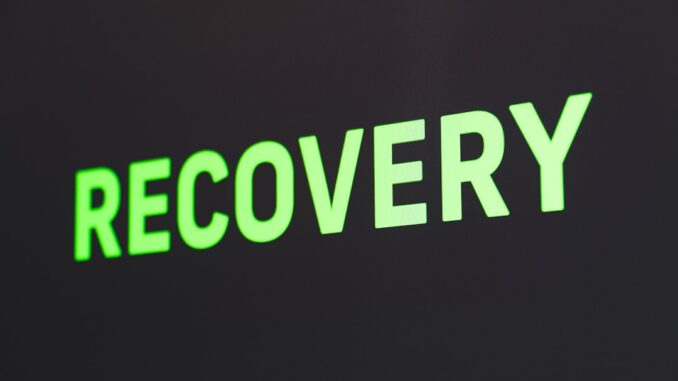
Summary
This article provides a comprehensive guide for individuals seeking a therapist specializing in addiction recovery. It emphasizes understanding personal needs, researching potential therapists, scheduling consultations, and trusting your instincts throughout the process. By following these steps, individuals can find a therapist who is the right fit for their journey.
** Main Story**
So, you’re looking for a therapist to help with addiction, huh? It’s a big step, and finding the right fit can feel overwhelming, but don’t worry, it’s totally doable. Let’s break down the process, step by step.
Step 1: Know Thyself (and Your Goals)
First things first, you gotta figure out what you’re really looking for. What kind of addiction are we talking about? Is it substances, like drugs or alcohol? Or maybe something else entirely, like gambling? Moreover, do you imagine yourself in a group setting, or is one-on-one therapy more your speed? Online or in-person? Jot these preferences down, it’ll guide you.
Really take some time to think about what you hope to get out of therapy. What does success look like to you? A solid grasp on your goals really focuses your search, and it helps you communicate effectively with potential therapists.
Step 2: Start Digging & Asking Around
Now for some research. I always start with the people I trust most.
- Your Doctor Knows Best: Your primary care physician, or family doctor, they’ve likely worked with other patients with similar needs. Their recommendations can be a goldmine. Plus, they can often help navigate the insurance maze, too. Win-win!
- Tap Into Mental Health Resources: Mental health associations and recovery centers? These places are teeming with information and can connect you with local therapists specializing in addiction. It’s worth checking them out.
- Don’t Be Afraid to Ask: Got friends, family, or even colleagues who’ve been through addiction treatment? Don’t hesitate to ask them for recommendations. Personal experiences can be incredibly valuable. I remember a friend, Sarah, who found her therapist through a support group, and she raved about him.
- Online Gold: And of course, there’s the internet. Sites like Psychology Today and GoodTherapy are like giant therapist directories, letting you filter by location, specialty, and even insurance. It’s a great place to start, but don’t treat it as the only place.
Step 3: Credentials, Please!
Okay, you’ve got a list of potential therapists, now it’s time to play detective. You want to make sure they’re legit. Are they licensed to practice in your state? Check with your state’s licensing board—it’s usually a quick online search.
And ideally, they should have experience with the specific type of addiction you’re dealing with. Bonus points for specialized certifications or training in addiction counseling. Don’t be shy about asking them directly about their experience. It’s your health we’re talking about.
Step 4: Consultation Time: The Vibe Check
Reach out and schedule initial chats with a few therapists. Think of it as a first date, but for your mental health. You’re trying to see if there’s a connection, a mutual understanding. Remember, you’re going to be discussing really personal stuff, so feeling comfortable is key.
Jot down some questions beforehand. Like, how do they approach therapy? What’s their treatment philosophy? What kind of experience do they have with similar cases? Honestly it really helps you think it through when you put pen to paper.
Step 5: Trust Your Gut, Make the Call
After your consultations, take some time to reflect. Did you feel like they really heard you? Were they empathetic, non-judgmental? Did their approach resonate with you?
Trust your instincts. Seriously. If something feels off, even if you can’t quite put your finger on it, don’t ignore that feeling. Finding the right therapist is a huge deal, so choose someone who feels like the best fit. And sometimes, they just simply aren’t the right fit, and that is okay!
Different Strokes for Different Folks: Types of Therapy
There isn’t a ‘one size fits all’ approach when it comes to treatment, but some of the most popular approaches are:
- Cognitive Behavioral Therapy (CBT): CBT helps you pinpoint and change those negative thought patterns and behaviors that fuel your addiction. It’s all about equipping you with coping mechanisms and strategies to prevent relapse.
- 12-Step Programs: You’ve probably heard of Alcoholics Anonymous (AA) or Narcotics Anonymous (NA). These are peer support groups that follow a structured, 12-step approach to recovery. The community aspect can be incredibly powerful.
- Medication-Assisted Therapy (MAT): This combines medications and counseling to manage withdrawal symptoms, reduce cravings, and support long-term recovery. It’s particularly helpful for opioid and alcohol use disorders. I’ve seen it make a real difference for a lot of people.
- Family Therapy: Addiction doesn’t just affect the individual; it impacts the whole family. Family therapy involves family members in the treatment process, addressing relationship dynamics and providing support for everyone involved.
Final Thoughts, and Some Practicalities
- Show Me the Money (Insurance Coverage): Check if your insurance covers the therapist’s services and what your out-of-pocket costs will be. Don’t be afraid to ask questions about billing and payment options.
- Location, Location, Location: Consider the therapist’s location, office hours, and whether they offer online sessions. You want something that fits your schedule and lifestyle.
In the end, this is about you. So, go with your gut, take your time and find someone who will not just hear you, but help you.


Be the first to comment